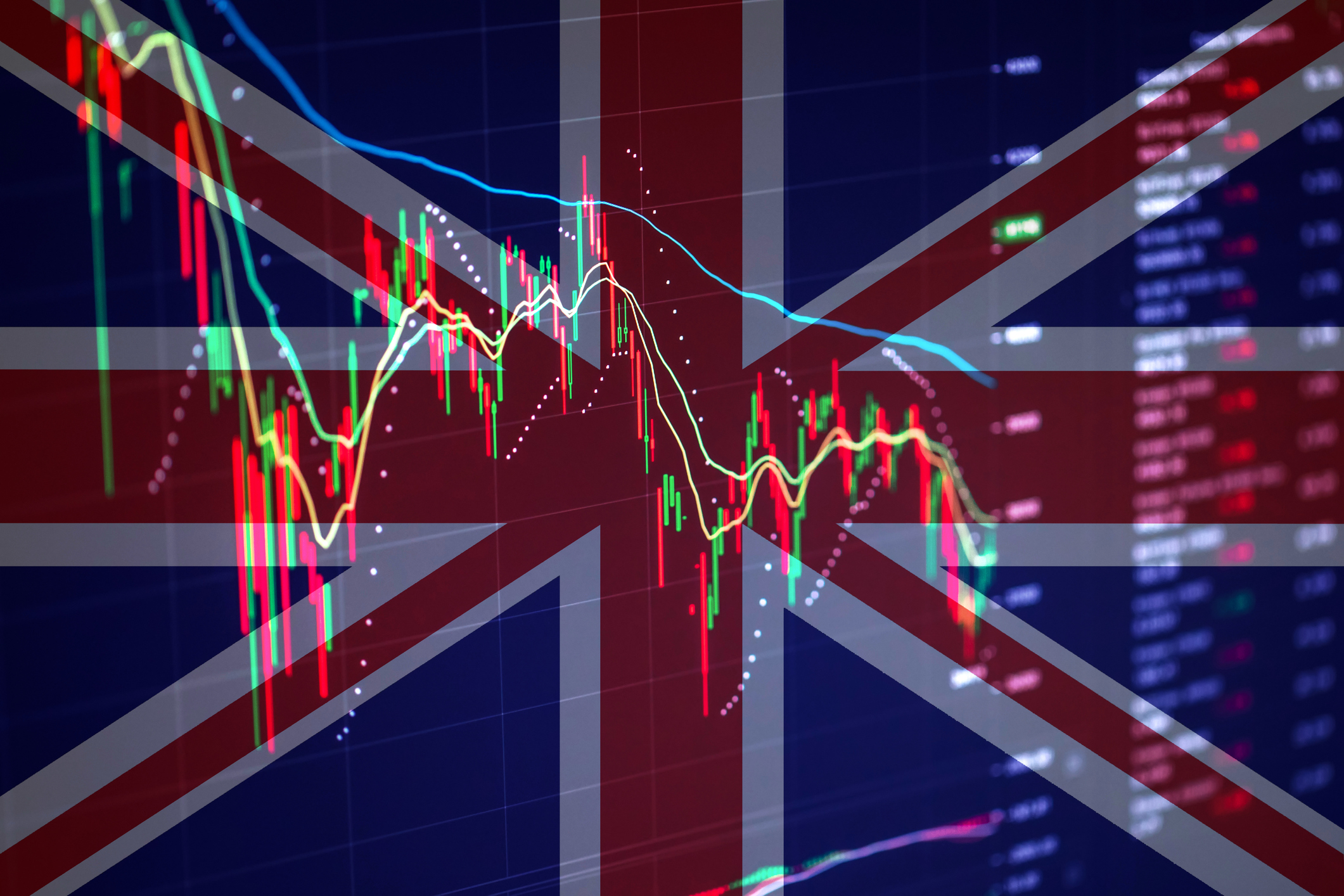Rising FTSE 100 gives Rachel Reeves a win at last
The FTSE 100 index of leading shares has broken through 9,000 for the first time. That’s not as impressive as it appears…


Get the latest financial news, insights and expert analysis from our award-winning MoneyWeek team, to help you understand what really matters when it comes to your finances.
You are now subscribed
Your newsletter sign-up was successful
Want to add more newsletters?

Twice daily
MoneyWeek
Get the latest financial news, insights and expert analysis from our award-winning MoneyWeek team, to help you understand what really matters when it comes to your finances.

Four times a week
Look After My Bills
Sign up to our free money-saving newsletter, filled with the latest news and expert advice to help you find the best tips and deals for managing your bills. Start saving today!
When chancellor Rachel Reeves was seen with tears in her eyes in the House of Commons recently, it was probably because she had been contemplating the prospects for the economy over the next few months. She promised she would generate “growth, growth, growth”, but so far, there has been very little sign of it. Her Budget last autumn stopped the economy in its tracks. The non-doms fled. Companies put a freeze on hiring. It has been a dismal start to her time in office, and it’s not now clear how long she can survive.
Yet she can claim one achievement. The FTSE 100 hit an all-time high this week, briefly nudging through 9,000. It fell back soon afterwards, but it is still up significantly on the year so far. It could even punch through the psychologically significant 10,000 barrier later in the year. It may not be long before we see Reeves brandishing a chart of the index to show how well she is doing and claiming that global investors are backing her policies.
The FTSE 100 is still lagging far behind
Still, the reality is that there is nothing to celebrate. The FTSE is only just starting to catch up with markets around the world after years of dismal underperformance. The index hit 6,930 all the way back in December 1999, meaning it has taken 25 years to add just another 2,000 points. For a comparison, Germany’s Dax index has tripled over the last 25 years. In the US, the S&P 500 has risen fourfold over the same time period; the tech-heavy Nasdaq more than six-fold. True, the CAC-40 in Paris has done almost as badly, but otherwise every other major index around the world has soared past the FTSE 100. Indeed, simply to have kept pace with its peers the index should be somewhere between 20,000 and 30,000 by now. In that context, 9,000 does not look like anything to get very excited about. The returns have still been miserable compared with what you might earn elsewhere.
MoneyWeek
Subscribe to MoneyWeek today and get your first six magazine issues absolutely FREE

Sign up to Money Morning
Don't miss the latest investment and personal finances news, market analysis, plus money-saving tips with our free twice-daily newsletter
Don't miss the latest investment and personal finances news, market analysis, plus money-saving tips with our free twice-daily newsletter
What success it has had won’t last. The FTSE 100 is a very international index, with companies from Shell to GSK to Diageo earning most of their profits from the rest of the world. But it is still basically tied to the British economy. And the outlook for growth in this country is grim, and getting worse all the time. Foreign investment has collapsed, retail sales are flat and very few new jobs are being created.
Worse, with the government desperate for extra money to spend, taxes are inevitably going to rise, and businesses will bear the brunt of that, just as they did last time around. We may well see higher business rates for big shops and warehouses, an extension of windfall taxes on the energy companies and the banks, and we may even see a “temporary” corporation tax surcharge, modelled on the levy that was charged in France last year. Whatever form it takes, it will mean lower profits and lower dividends to distribute to shareholders, and that will stop the index from climbing much higher.
The FTSE 100 – a dull backwater
Finally, companies are still leaving, with a wave of major businesses choosing to list their shares in New York instead of London. The likes of Flutter and Wise have already gone; even the largest company quoted on the FTSE, the pharmaceutical giant AstraZeneca, has discussed a move to the other side of the Atlantic. Meanwhile, fast-expanding new businesses, such as the fintech star Starling Bank, are looking towards Wall Street instead of the City, and global companies, such as the Chinese fast-fashion powerhouse Shein, are turning down the opportunity to list here. For an index to grow at a decent rate, it needs a steady stream of faster-growing new companies to join it, and to replace the older, more mature giants that don’t have much potential for expansion. The FTSE 100 has entirely lost the ability to attract those kinds of businesses, and that is going to make it very hard to keep up with its peers, especially in the US.
The blunt truth is that the FTSE is turning into a backwater – and investors are still a lot better off putting their money to work elsewhere.
This article was first published in MoneyWeek's magazine. Enjoy exclusive early access to news, opinion and analysis from our team of financial experts with a MoneyWeek subscription.
Get the latest financial news, insights and expert analysis from our award-winning MoneyWeek team, to help you understand what really matters when it comes to your finances.

Matthew Lynn is a columnist for Bloomberg and writes weekly commentary syndicated in papers such as the Daily Telegraph, Die Welt, the Sydney Morning Herald, the South China Morning Post and the Miami Herald. He is also an associate editor of Spectator Business, and a regular contributor to The Spectator. Before that, he worked for the business section of the Sunday Times for ten years.
-
 How a ‘great view’ from your home can boost its value by 35%
How a ‘great view’ from your home can boost its value by 35%A house that comes with a picturesque backdrop could add tens of thousands of pounds to its asking price – but how does each region compare?
-
 What is a care fees annuity and how much does it cost?
What is a care fees annuity and how much does it cost?How we will be cared for in our later years – and how much we are willing to pay for it – are conversations best had as early as possible. One option to cover the cost is a care fees annuity. We look at the pros and cons.
-
 "Botched" Brexit: should Britain rejoin the EU?
"Botched" Brexit: should Britain rejoin the EU?Brexit did not go perfectly nor disastrously. It’s not worth continuing the fight over the issue, says Julian Jessop
-
 'AI is the real deal – it will change our world in more ways than we can imagine'
'AI is the real deal – it will change our world in more ways than we can imagine'Interview Rob Arnott of Research Affiliates talks to Andrew Van Sickle about the AI bubble, the impact of tariffs on inflation and the outlook for gold and China
-
 Tony Blair's terrible legacy sees Britain still suffering
Tony Blair's terrible legacy sees Britain still sufferingOpinion Max King highlights ten ways in which Tony Blair's government sowed the seeds of Britain’s subsequent poor performance and many of its current problems
-
 Rachel Reeves is rediscovering the Laffer curve
Rachel Reeves is rediscovering the Laffer curveOpinion If you keep raising taxes, at some point, you start to bring in less revenue. Rachel Reeves has shown the way, says Matthew Lynn
-
 ISA reforms will destroy the last relic of the Thatcher era
ISA reforms will destroy the last relic of the Thatcher eraOpinion With the ISA under attack, the Labour government has now started to destroy the last relic of the Thatcher era, returning the economy to the dysfunctional 1970s
-
 'Expect more policy U-turns from Keir Starmer'
'Expect more policy U-turns from Keir Starmer'Opinion Keir Starmer’s government quickly changes its mind as soon as it runs into any opposition. It isn't hard to work out where the next U-turns will come from
-
 Britain heads for disaster – what can be done to fix our economy?
Britain heads for disaster – what can be done to fix our economy?Opinion The answers to Britain's woes are simple, but no one’s listening, says Max King
-
 'Investors will reap long-term rewards from being bullish on UK equities'
'Investors will reap long-term rewards from being bullish on UK equities'Opinion Nick Train, portfolio manager, Finsbury Growth & Income Trust, highlights three UK equities where he’d put his money